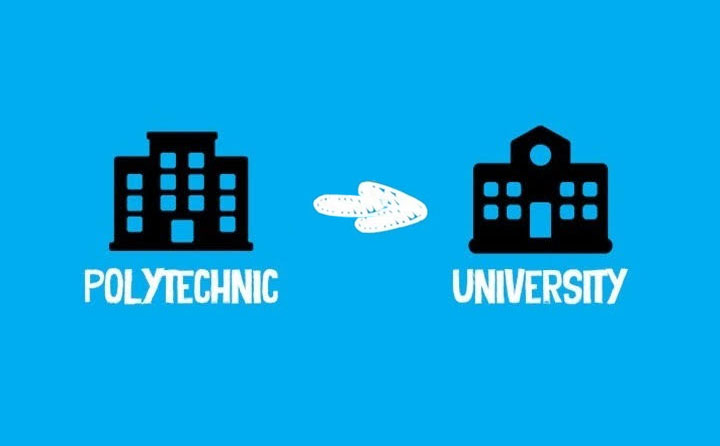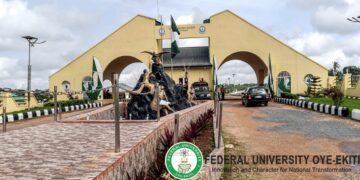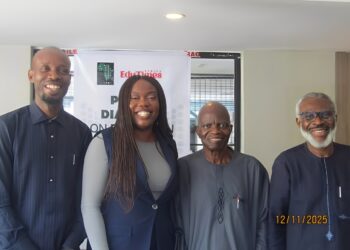
This article extensively discusses the poorly thought-out conversion of polytechnics into universities across Nigerian states, which has greatly affected the subsistence of these institutions. It also critiques the unfounded discrimination against HND graduates in both public service and private organizations, which discourages potential candidates of the Unified Tertiary Matriculation Examination (UTME) from applying for admission into technical schools. Furthermore, it exposes the subtle attempt to exterminate these institutions through negative policies that are primarily sponsored to undermine and demarket the system.
The National Policy on Education (2019), as amended, mandates polytechnics to produce human resources in applied sciences, commerce, management and technology through full-time and part-time courses of instruction and training. Njoku (2021) also emphasizes that these institutions have a practical and highly interactive orientation, adopting technological advancements to provide pedagogical approaches to teaching and learning. The polytechnic system was established to champion technical and vocational education and training, including skills development and technological advancements towards the improvement of Nigerian socio-economic plans (FGN, 2004).
In its report, Punch (2023) claims that China converted 600 universities into polytechnics in 2017. This decision was made because the country values technical education and skills, which they believe are crucial to maintaining relevance among other nations. Unfortunately, the future of other public technical institutions in our country is now at risk. Educational stakeholders across several states have made precipitous decisions to ‘upgrade’ these institutions, which is quite embarrassing.
On February 9, 2022, the National Universities Commission (NUC) approved the conversion of the Lagos State Polytechnic into the Lagos State University of Science and Technology. In 2021, the immediate-past governor of Delta State, Ifeanyi Okowa, also converted the Delta State Polytechnic, Ozoro into the Delta State University of Science and Technology. These decisions have had a negative impact on other institutions such as the Federal Polytechnic, Offa; Yaba College of Technology; Federal Polytechnic, Ilaro; and others.
Amidst other pertinent responsibilities in the education sector, why is the conversion of technical institutions into universities the lifelong aim of the Federal Government and other education stakeholders, including state governments? Instead of eliminating the unprecedented level of dichotomy between degree holders and HND holders, our leaders are focused on gaining cheap political points with their horrible decisions. Business Day (2023) also reports that the President of ASUP, Mr Anderson Ezeibe, lamented that only one per cent of candidates in the Joint Admission Matriculation Board’s (JAMB) Unified Tertiary Matriculation Examination submitted applications for polytechnic education in the last five years. The undeniable evidence of the Nigerian government’s effort to cripple and undermine the system, ultimately causing it to lose its relevance, has emerged.
It is high time the stakeholders took drastic steps against every impediment to the growth of technical education promptly. Bills against discrimination of polytechnic graduates should be signed into law, with full implementation and supervision in both the public sector and civil service. These institutions should be empowered by law to award Bachelor of Technology (BTech) degrees to successful students. These measures will positively influence admission prospects and increase enrollment in technical education institutions. The inadequate funding of the system has been burdensome; therefore, at least 20 per cent of the national budget must be allocated to the education sector. The appointment of officers should be strictly based on merit, and the staff appraisal process must be prioritized to save the system from irrecoverable decline.
REFERENCES
Business Day (October 27, 2023). Polytechnic to University Conversions Threaten Nigeria’s Technical Education Future.
The Punch (March 1, 2023). Stop Converting Polytechnics into Varsities, NBTE begs FG.
Njoku C.U (2021). ‘Mainstreaming the Nigerian Polytechnic System into Nigeria’s Growth and Development Plan’, Repositioning Nigeria’s Polytechnics for National Relevance and Global Competitiveness: Rockview Hotel Royale, 26-27 October.
Federal Republic of Nigeria (2019). National Policy on Education. Lagos: Nigerian Educational Research and Development Council (NERDC) Press.
Federal Republic of Nigeria (2004), National Policy on Education, Lagos. Nigerian Educational Research and Development Council (NERDC) Press.
Samuel Tolulope Alimi is the visionary founder and lead scholar at English TV, an online platform established for the teaching of the English language on social media platforms. He also earned a BA (Ed) from the prestigious Olabisi Onabanjo University, Ogun State, where he studied English and Education.
As a Grammar Columnist with the Peoples Daily newspaper, one of the foremost and trusted national newspapers, he writes about Nigerian English on Page 23 of every Saturday’s publication headlined COMMON ERRORS IN ENGLISH WITH SAMUEL ALIMI. In his intellectual odyssey, he has written over 30 detailed articles that have been published for his voracious readers across several states.
As a goal-oriented ambassador of Scholarship IQ, Samuel Tolulope Alimi assiduously promoted the organization’s mission to build the world’s largest African student directory in two local governments in Nasarawa State, Nigeria. He also has a wealth of hands-on experience in ghostwriting autobiographies, community service, and research through his internship at SO41 Educational Consultancy, Ogun State.

















































































 EduTimes Africa, a product of Education Times Africa, is a magazine publication that aims to lend its support to close the yawning gap in Africa's educational development.
EduTimes Africa, a product of Education Times Africa, is a magazine publication that aims to lend its support to close the yawning gap in Africa's educational development.